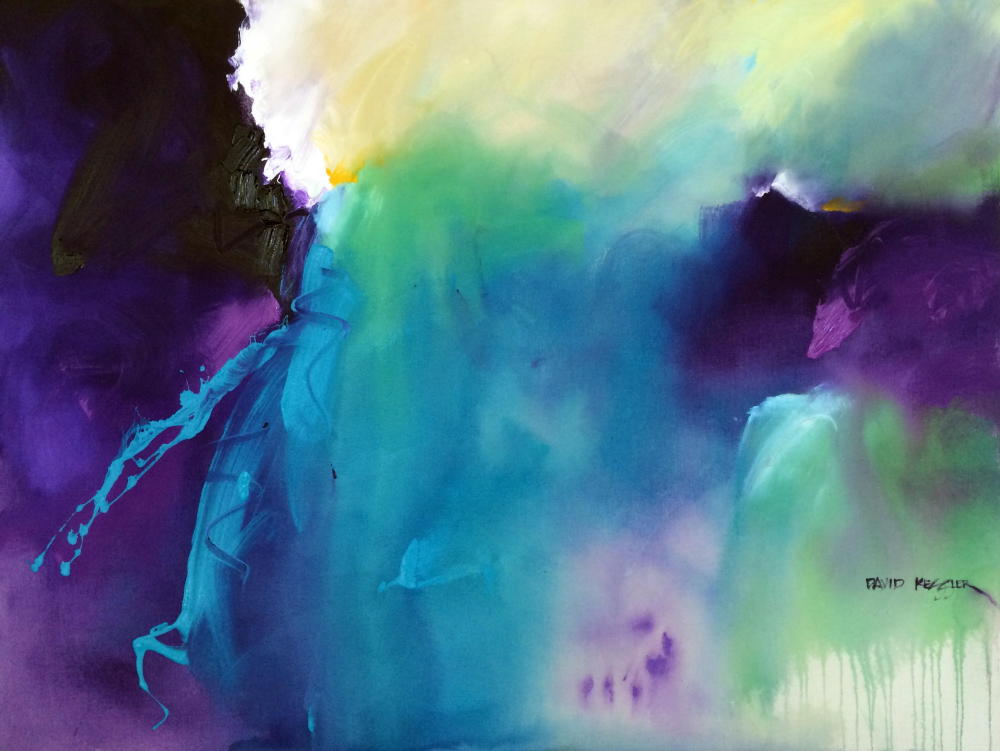Photographing Your Art
/Photographing Your Art
This is not a post with technical information regarding specifics of photography equipment, but rather a simple process that artists can use to get good results photographing their artwork.
I'll start by saying there is no one way to photograph your artwork. Your approach will vary depending on the type of art you make and the amount of light and dark values and colors in your work. Everyone's art is different you need to find the approach to lighting the work that works best for your type of artwork.
Lighting. If you're a watercolor painter with lots of white paper in your paintings, you'll likely need indirect light for your photos. if you're like me and have mostly mid values with smaller amounts of light and dark value, you'll be able to use more direct light. I photograph my work in direct south sunlight, usually between 12:00-2:00 pm. Many people have said this won't work and that I shouldn't do it, but it works great for my paintings. I even angle the work a bit to highlight the texture in my paintings. It took lots of experimentation to find what worked best for me.
My advice is to find the best location in and around your home or studio that provides the optimal lighting conditions to photograph your art. Experiment with different lighting conditions and times of day to see what works best. Also try photographers lights indoors if you have them (I'm not suggesting you buy them just to photograph your work). Through experimentation you'll find the best approach to make your photos look like your originals.
Photograph Everything. I encourage you to photograph everything you do, both successes and failures, to provide a historical record of your art life and journey. It's fun sometimes to look back and realize how far you've come in developing your skills.
Editing Your Photos. One of the most important things you can do is correctly crop and color correct your photos to make them look as close as possible to the original artwork. Cropping removes all background around the painting. Do not show the frame, if it is framed - photograph it before framing. You'll never get the frame perfectly square in the picture. Photograph the artwork only. There are many free or inexpensive software application available to edit your photos. Again, experiment to find the one that has the features that work best for you. Use a tripod if possible to avoid blurry pictures. Your photos need to be sharp and clear.
Photograph Prior to Framing or Varnishing. It is nearly impossible to get a good photograph of a very glossy surface, so please photograph your work prior to placing the varnish over the surface. Also photograph prior to framing, particularly if glass will be placed over the original.
Good Images are Critical. Good images of work are critical in illustrating the work to others. You'll need good images when submitting to shows or galleries, and in creating promotional and marketing materials.
Your Images on the Web. Before placing images on your website or social media, resize them. Never resize your original photograph, make a copy first and then resize the copy. I use a maximum of 1000 pixels in the longest dimension. Resized images allow your website to load quicker and they prevent others from printing your work out into poster sized prints.
For those that are interested in a fun and engaging workshop experience, I have some workshops coming up that you will love: (You can see a full list of Workshops by Clicking HERE.)
- October 13-15, 2017 New Braunfels Art League, New Braunfels, TX. To register contact Sandy Oberg oberglabs@gmail.com or 210-861-0751. Details HERE.
- October 20-22, 2017 Lafayette Art Association, Lafayette, LA. to register contact Susan Hamilton susanham1@me.com or 337-849-6791. This is an Advanced Workshop focusing on developing a series of paintings.
- November 2-4, 2017 David M. Kessler Fine Art Studio, Winston-Salem, NC. To register contact David at david@davidmkessler.com or 336-418-3038. This is an Advanced Workshop focusing on developing a series of paintings.
- November 7-9, 2017 Spring Island, SC. To register contact Pam Brickell by email: pbrickell@springisland.com or phone: 843-987-3403.
- November 11-12, 2017 Art of the Carolinas, sponsored by Jerry's Artarama, Raleigh, NC. Go to: www.artofthecarolinas.com to register.
- November 17-19, 2017 Donna Downey Studios, Huntersville, NC. To register contact Bill Downey: bill@donnadowney.com or visit the website: www.donnadowney.com.
As always, thanks so much for your support!
David
P.S. If you cannot attend a live event, or prefer to learn online in the comfort of your home or studio, Abstract Painting Academy is my online workshop:
Abstract Painting Academy is the next best thing to a live workshop. You can learn more about the program by Clicking HERE.



